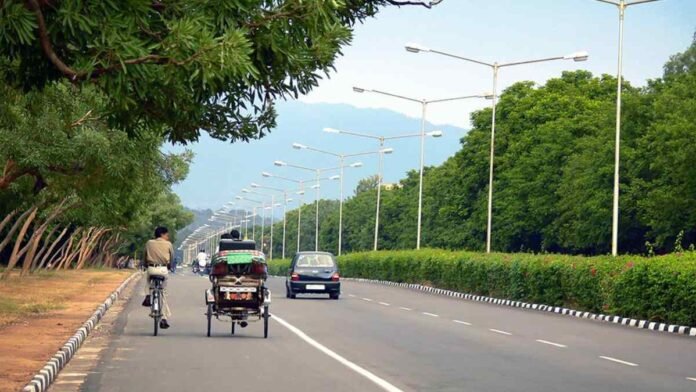When they started counting how clean cities were, Indore was at number 25. Multiple actions were taken to improve the way garbage is collected and disposed of, and to make people more aware of the importance of keeping things clean.
2 min read 2024-01-12, 04:30 PM IST
Summary of the content
- Indore’s Consistent Excellence: Indore has secured the top spot in the Swachh Survekshan Awards for seven consecutive years. The city’s journey from the 25th rank in 2016 to the top position is attributed to significant improvements in sanitation.
- Methodology of Swachh Survekshan Awards: The awards focus on citizen feedback and field assessment, with state governments updating data on the Swachh Bharat Mission Management Information System. Criteria for evaluation include aspects like segregated garbage collection and technical support for sanitation workers.
- Key Factors for Indore’s Success: A sustainable garbage collection, processing, and disposal system is credited for Indore’s consistent success. The city targeted specific indicators in the survey and implemented measures to enhance sanitation practices.
- Segregation and Disposal of Waste: Indore terminated private contracts for solid waste collection and redesigned routes for direct waste collection from households. NGOs played a crucial role in raising awareness among citizens, encouraging them to directly hand over garbage to municipality vehicles.
- Addressing Resistance and Employment Concerns: Despite initial resistance, the IMC successfully absorbed local garbage collectors and ragpickers into the workforce. Installation of dustbins initially led to job losses, but the IMC addressed this by absorbing affected individuals into the workforce.
- Effective Waste Collection: Indore collects substantial amounts of wet, dry, and plastic waste daily using specially designed vehicles with different compartments.
- Legacy Waste Management: The city cleared and treated a significant amount of legacy waste at the Devguradiya ground in a short period, meeting Swachh Bharat criteria.
- Toilet and Dustbin Installation: NGOs played a key role in identifying areas needing urinals and toilets, contributing to addressing open defecation. Individual and community toilets were constructed based on specific household needs. Spot fines were imposed on individuals engaging in public littering, spitting, or urination, contributing to a cultural shift in sanitation habits.

In a notable achievement, Indore has secured the top spot for the seventh consecutive year in the Central government’s annual Swachh Survekshan Awards 2023. This remarkable feat follows the city’s transformative journey, especially considering its initial ranking at number 25 when the awards commenced in 2016. The consistent success of Indore in the National Cleanliness Survey is attributed to a robust system of garbage collection, processing, and disposal, forming the cornerstone of the city’s sustainable sanitation practices.
Methodology of Swachh Survekshan Awards
The Union Housing and Urban Affairs Ministry oversees the Swachh Survekshan Awards, which were initiated as part of the Swachh Bharat Mission. The evaluation process relies on two primary criteria: citizen feedback and field assessment. State governments are responsible for updating data on the Swachh Bharat Mission Management Information System, with on-field assessors validating various aspects of sanitation through citizen validation in residential and commercial areas. The criteria for evaluation vary based on the issue surveyed, encompassing aspects such as segregated garbage collection, technical support for sanitation workers, and more.
Indore’s Path to Cleanliness
Amit Dubey, the consultant for the Swachh Bharat Abhiyan at the Indore Municipal Corporation (IMC), credits Indore’s sustained success to the development of a robust garbage collection, processing, and disposal system. The city targeted key indicators mapped in the survey and implemented a series of measures to enhance the sanitation and waste collection system.
- Segregation and Disposal of Waste: The IMC terminated private contracts for solid waste collection, taking on the responsibility and devising new strategies. Routes of municipality garbage disposal vehicles were redesigned for direct collection of segregated waste from households. NGOs played a crucial role in raising awareness among citizens, encouraging them to hand over their garbage directly to municipality vehicles.
- Addressing Resistance and Employment Concerns: Despite initial resistance from local garbage collectors and ragpickers, the IMC successfully absorbed many into the workforce. Installation of 3,000 dustbins every 500 meters led to job losses for ragpickers, but the IMC addressed this by absorbing them into the workforce as ‘Safai Mitras.’
- Effective Waste Collection: Approximately 692 tonnes of wet waste, 683 tonnes of dry waste, and 179 tonnes of plastic waste are now collected daily in the city under different categories. Specially designed vehicles with different compartments for bio-waste items ensure efficient waste collection.
- Legacy Waste Management: Indore cleared and treated nearly 13 lakh metric tonnes of legacy waste at the Devguradiya ground in just six months, meeting the criteria for a five-star rating in Swachh Bharat. Funds from the Smart Cities Mission, Swachh Bharat Mission (SBM), and IMC’s property tax kitty were utilized for constructing 10 transfer stations to collect waste before transportation to the dumping ground.
- Toilet and Dustbin Installation: NGOs identified areas in need of urinals and toilets, addressing the challenge of open defecation. Individual and community toilets were constructed based on the specific needs of households, especially in slums and areas near the Railway line. Spot fines were imposed on individuals littering, spitting, or urinating in public spaces, contributing to a cultural shift in sanitation habits.
Conclusion
Indore’s journey to becoming the cleanest city in India exemplifies the power of strategic planning, community engagement, and sustained efforts in implementing effective sanitation practices. The city’s success in consistently topping the Swachh Survekshan Awards is a testament to the transformative impact of a comprehensive and well-executed sanitation system. As other cities look to replicate this success, Indore serves as a model for sustainable urban cleanliness and waste management.

